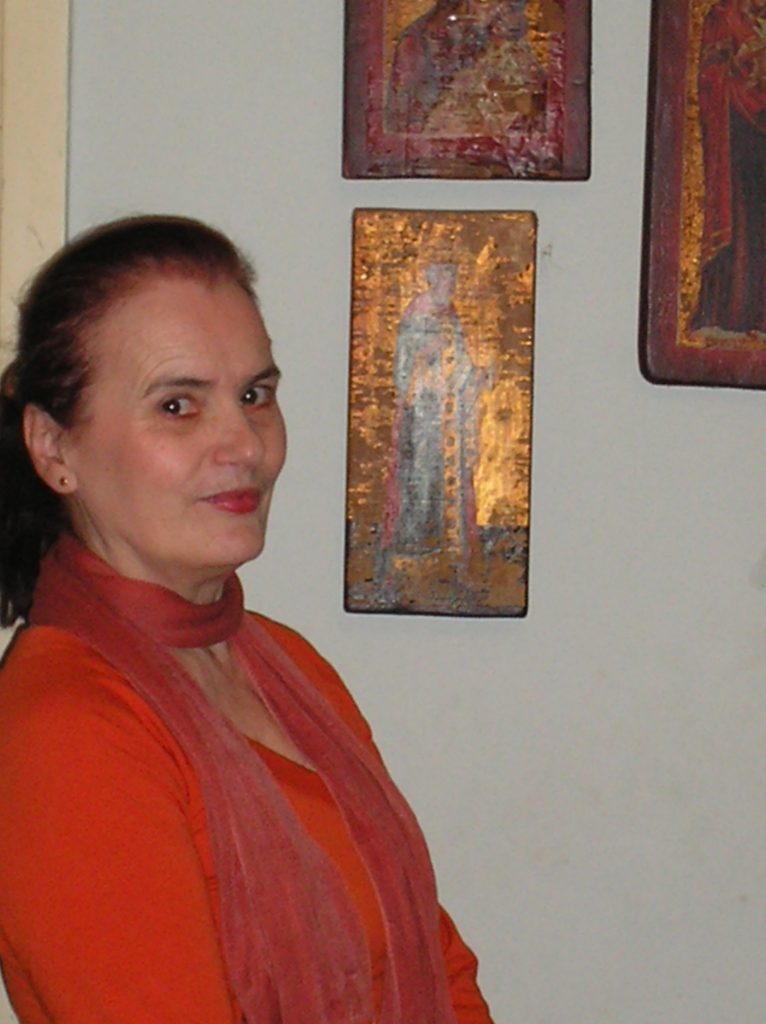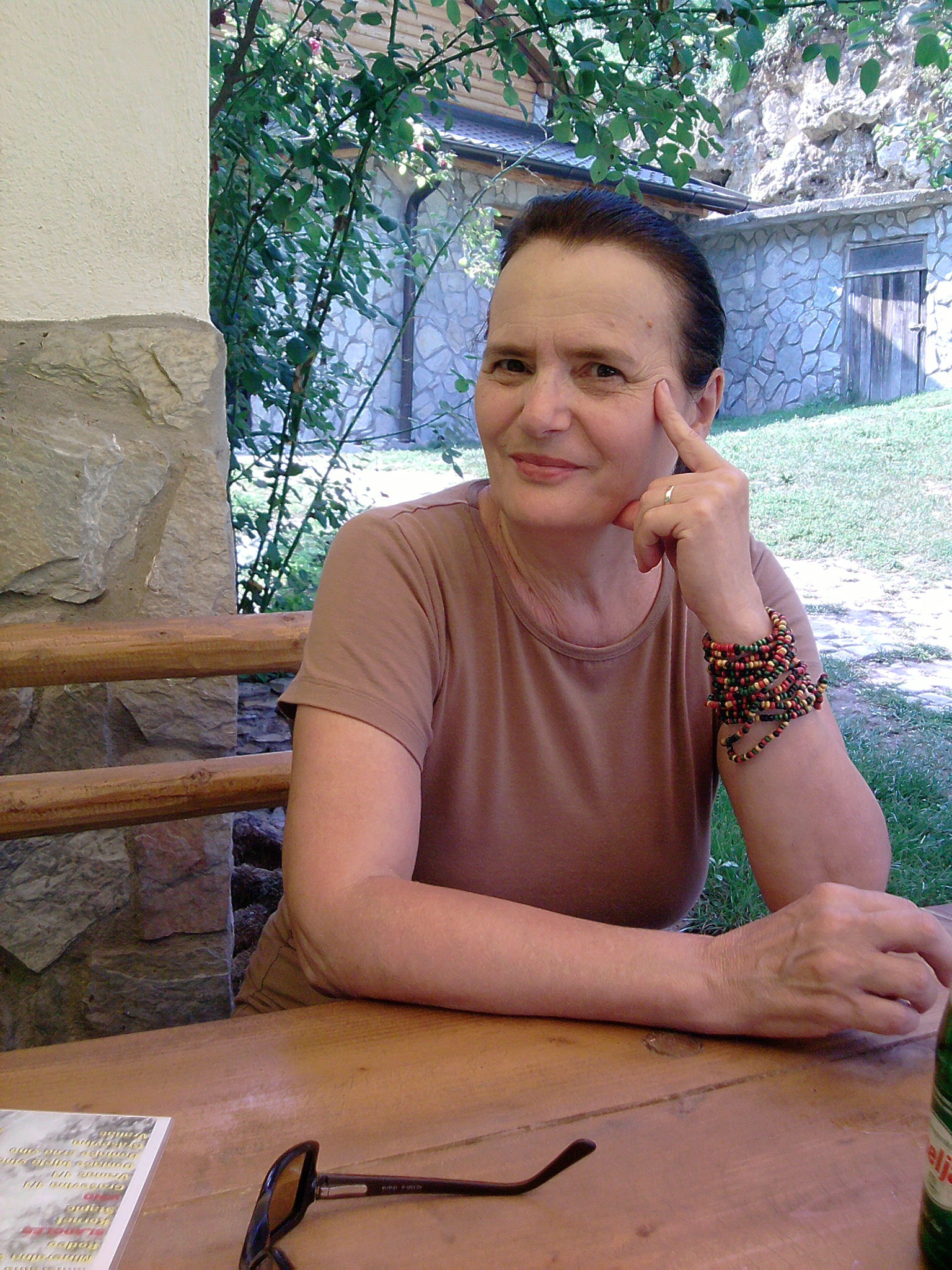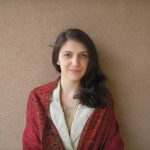
After her benevolence during the post-war period, people did not brand her a hero, but instead a person ostracized by her community. The best possible option for her was to return to Jajce, because, aside from helping Bajro, there was no place for her in Banja Luka anymore. But her return to Jajce was not salvation, only consolation.
Her thorny path started with her birth in 1947. Although she lived with her father, mother and two brothers, she did most of the heavy lifting around the house. She played the role of mother, housewife and teacher. Seemingly frail, yet so strong, she devoted her life to the calling for which she was born, pedagogy.
She raised my mother, my younger brother, and me. She made a little go a long way, in contrast to those who had a lot, but did little for it. She divided everything fairly, and often set herself to the side. For her, there was no such thing as division based on skin color, religion or ethnic belonging. There were good and bad people, and she helped both. She does that even today, in her small attic apartment in Jajce where she provided living space for the four of us. And the path to providing this was very tough.
It was especially hard during the war. She wandered the streets of Banja Luka with her daughter, as things went “from pillar to post,” or “from bad to worse,” as they say. All her property fit into two cardboard boxes. Moving from one foreign threshold to another. Carrying cardboard boxes, holding the memories of Jajce in her soul.
On a street named Orlovački put they were given a cottage to use. Although it was heavy with moisture, she said: “The balcony is superb. We will never have a prettier one. Let’s spend time on it whenever we can. Let’s turn the moisture into sun.”
One morning they were awoken by the sound of chainsaws. Locals decided to widen the road even though many would say it was fine, but because the owner of those tall trees that were standing in the way wasn’t around anymore, they decided to go ahead with these plans. In front of every house, there was around 20 cubic meters of timber. A huge quarrel started. She listened, but laid low. No one even considered her opinion, or that she may have needed firewood.
On the third day she decided to go to Vaso’s house where she bought milk for Sara, whose father was on the battlefield. Her father was never happy about having a child, but she was. Sara’s menu consists of breadcrumbs sprinkled with sugar and milk or salted breadcrumbs and milk. Some would say, “Poor child,” but she would always say “My defiant little sunshine, getting healthy and progressing in spite of those who did not value your existence.”
She asked Vaso about firewood since he had the upper hand in deciding who gets such things. After a few days, she got the firewood. Even though people pitied her and her difficult life story, she decided to hand the firewood over to a man named Bajro and his wife because she thought they needed it more.
“They were returnees, living in their shack. Bajro had gone blind, and their daughter had become mentally ill. Only Bajro’s wife was well. They waited for three months to get electricity, which would never happen. Bajro was sitting in a wheelchair. It was good that he couldn’t see because it would hurt him knowing they didn’t have electricity,” she remembers, while explaining her decision to give the firewood to Bajro’s wife so that she could wash the laundry because there was no electricity to heat the water on stove.
She also invited Bajro’s son over and told him to take everything. She would get by. People were shocked and told her she was crazy, but she didn’t care. It was the talk of the village for a few days.
Suddenly, news arrived that the refugees who were living in her apartment had returned home and she could now return to Jajce to her newly liberated accommodation.
“Is there a God? I don’t know. Sometimes I think it is some cosmic force that circles in nature, like water. I did something good for Bajro, someone else does something good for me, and so the cycle continues. Dare to do it, even if it’s dangerous to even think about doing it. Be a four-leaf clover. In a sea of three-leaf clovers, you will be seen,” she says.
After her benevolence during the post-war period, people did not brand her a hero, but instead a person ostracized by her community. The best possible option for her was to return to Jajce, because, aside from helping Bajro, there was no place for her in Banja Luka anymore. But her return to Jajce was not salvation, only consolation.

Years passed, but we [Bosnians] did not move forward: we were stagnant. Even today people see a threat in others, in strangers. We do not help strangers because of this fear. No matter how much we advocate equality in theory, people are still not ready to apply it in practice.
According to the 1991 census, there were approximately 29,000 Bosniaks living in Banja Luka, which was five times fewer than the number of Serb inhabitants. Bosniaks were considered a minority and were treated as such. In Jajce, the opposite situation occurred. Bosniaks were the majority and Serb institutions and religious symbols were almost non-existent.
The events, which occurred in Banja Luka, should have branded Slavica as a courageous and humane woman. However, not even a welcome was organized for her as a returnee. Due to her religion, many doors remained closed to her, including those belonging to local businesses.
She retired in Podbrdo near Mrkonjić Grad, where there is a majority Serb population. She hitchhiked to work every day. She always believed that great sorrow seeks great souls.
The only thing more miserable than her pension is the way today’s system of values is set up.
In order to encourage others she talks about how some women did things differently, even if they were not allowed to.
“I dare. Why wouldn’t I dare? That is the only way I know how to live. I am like a colorful flower, I spring forth and emit my scent even where I am not supposed to,” is her life motto.
That is why I have chosen to write about her, and I will always talk and write about her, because I consider her to be an example of humanity. She is the link of utmost importance in the chain of unity and tolerance.
This piece was recently awarded second place in the Post-Conflict Research Center’s “Srđan Aleksić Youth Competition,” which challenges young people in Bosnia to discover, collect, and share stories of peacebuilding, moral courage, and interethnic cooperation from their local communities, and is kindly funded by the National Endowment for Democracy. Through the competition, the center hopes to inspire youth to take an active role in the promotion of positive examples of people who are making a difference in the lives of others in Bosnia-Herzegovina.






